- News
- Reviews
- Bikes
- Accessories
- Accessories - misc
- Computer mounts
- Bags
- Bar ends
- Bike bags & cases
- Bottle cages
- Bottles
- Cameras
- Car racks
- Child seats
- Computers
- Glasses
- GPS units
- Helmets
- Lights - front
- Lights - rear
- Lights - sets
- Locks
- Mirrors
- Mudguards
- Racks
- Pumps & CO2 inflators
- Puncture kits
- Reflectives
- Smart watches
- Stands and racks
- Trailers
- Clothing
- Components
- Bar tape & grips
- Bottom brackets
- Brake & gear cables
- Brake & STI levers
- Brake pads & spares
- Brakes
- Cassettes & freewheels
- Chains
- Chainsets & chainrings
- Derailleurs - front
- Derailleurs - rear
- Forks
- Gear levers & shifters
- Groupsets
- Handlebars & extensions
- Headsets
- Hubs
- Inner tubes
- Pedals
- Quick releases & skewers
- Saddles
- Seatposts
- Stems
- Wheels
- Tyres
- Health, fitness and nutrition
- Tools and workshop
- Miscellaneous
- Cross country mountain bikes
- Tubeless valves
- Buyers Guides
- Features
- Forum
- Recommends
- Podcast
 2021 Trek road bikes Nov 2020
2021 Trek road bikes Nov 20202021 Trek road bikes - explore the complete range with our guide
While the US firm has a huge range that covers virtually all areas of cycling, Trek road bikes fall into three families: Madone, Emonda and Domane. There are also the Checkpoint gravel bikes and a couple of cyclocross models.
Madone has an emphasis on aerodynamic efficiency, Emonda is all about lightweight, Domane has a focus on comfort and ride quality and Checkpoint (disappointingly not Daemon to keep with the anagram theme) is for dirt roads and mixed-surface riding. There are many models at different price points within each of those categories.
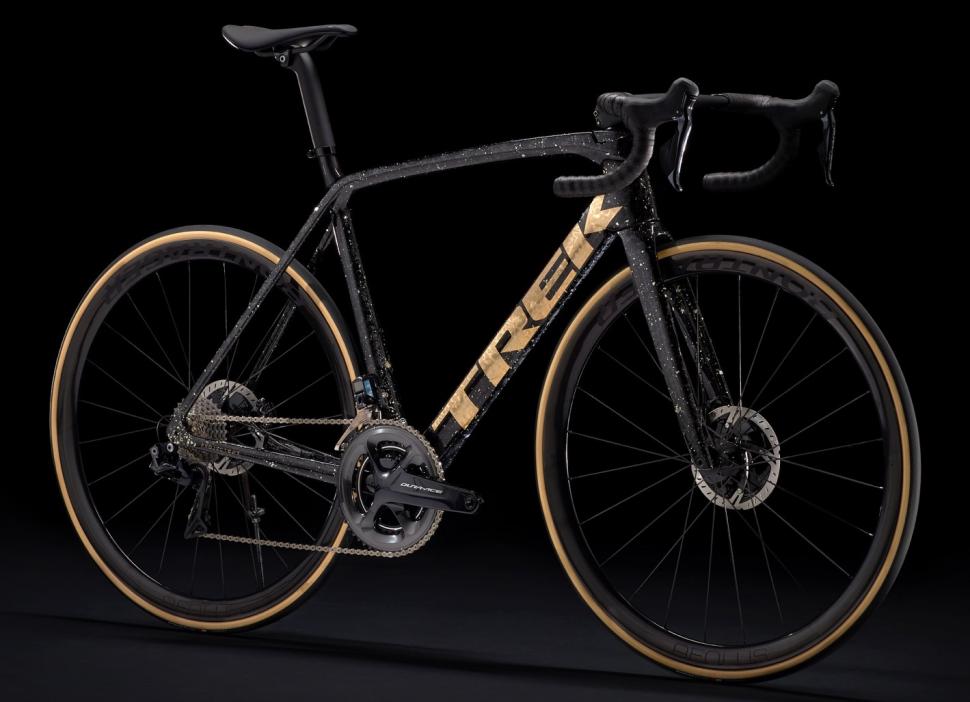 Some of the higher end bikes are available through Trek's Project One (above) that lets you choose the components you want and even the paint scheme.
Some of the higher end bikes are available through Trek's Project One (above) that lets you choose the components you want and even the paint scheme.
Here are the highlights of the range available to UK consumers.
Emonda
The Emonda (pronounced eh-mon-dah) is the lightweight Trek road bike and the carbon-fibre Emonda SLR and Emonda SL frames have had huge updates for the 2021 model year, whereas the aluminium Emonda ALR is unchanged.
The carbon-fibre Emondas are disc brake only platforms. You can still buy an Emonda ALR frameset that takes rim brakes, but complete bikes are disc brake only.
Emonda SLR
Back in June 2020, Trek announced new versions of both the Emonda SLR and the Emonda SL, adding features designed to improve aerodynamics for the first time, including tube profiles shaped to reduce drag.
Check out our news story on the launch of the new Trek Emonda SLR range here

The top-level Emonda SLR has a frame that weighs a claimed 698g, made from a new material that Trek calls OCLV 800 Series. The brand says that the Emonda SLR is 60 seconds per hour faster than its predecessor on flat roads, and 18 seconds per hour faster going up an 8% gradient (get details on those claims in our news story).
All of the Emonda SLR and Emonda SL bikes are now built to Trek’s H1.5 geometry, which is designed to be efficient while remaining accessible and comfortable for most riders.
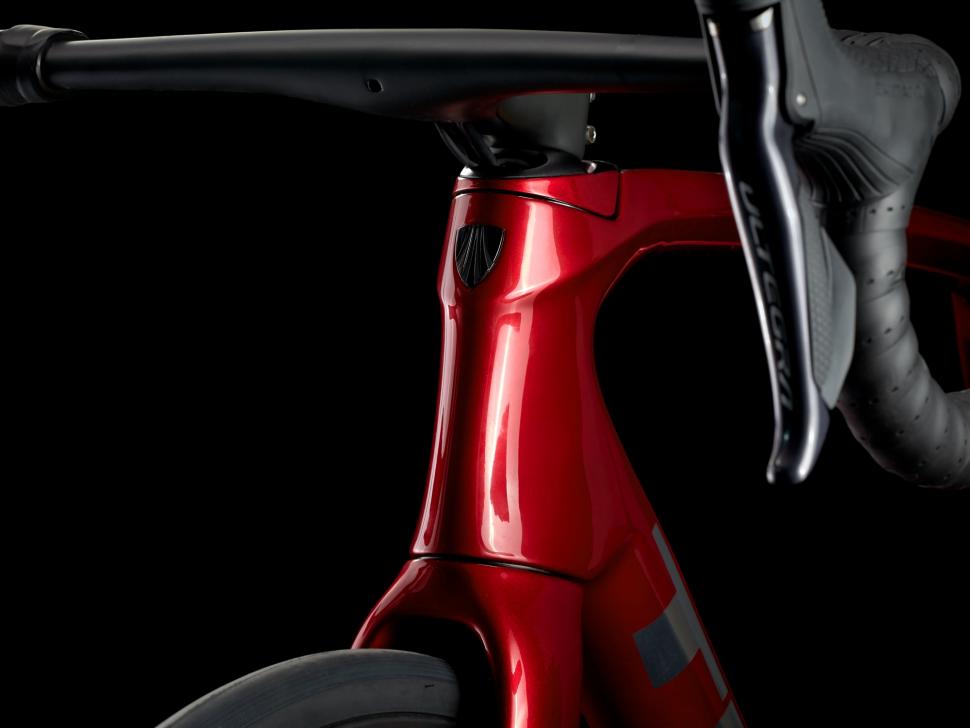
New Bontrager Aeolus wheels and a one-piece Aeolus RSL VR-C handlebar/stem are central to the range.
Previous Emondas featured Trek's BB90 bottom bracket system with the bearings pressed into the BB shell, but all the new Emonda SLR and SL models use T47, which is a threaded design that the brand already uses on its Domanes.
The Emonda SL and SLR bikes have clearance for 700c x 28mm tyres.
There are five Trek Emonda SLRs in the 2021 range, starting with the Shimano Ultegra-equipped Emonda SLR 6 (£6,000, above).
The two top models in the Emonda SLR range, each at £10,700. The Emonda SLR 9 (above) is equipped with Shimano Dura-Ace components while the Emonda SLR 9 eTap has SRAM’s Red eTap AXS groups.
Buy if: You’re after a fast road bike with a focus on light weight… and now aerodynamic efficiency too.
Emonda SL
The Emonda SL is identical to the Emonda SLR from a frame shape perspective; it uses the same tube profiles and the same geometry, the only difference being the composite used. Whereas the SLR uses 800 Series OCLV Carbon, the SL features 500 Series.
Reviewed: Trek Emonda SL 6 Pro 2021
This makes a significant difference to weight: the Emonda SL's frame is 1,142g and the fork is 380g – a total of 459g heavier overall.
The Emonda SL bikes also use a separate handlebar and stem rather than the one-piece Aelous RSL VR-C handlebar/stem.
There are five Trek Emonda SLs for 2021, ranging from the £2,500 Emonda SL 5 – with a mid-range Shimano 105 groupset – to £5,800 for the Emonda SL 7 eTap – that’s SRAM Force eTap AXS.
When we reviewed the £3,700 Trek Emonda SL 6 Pro (above) here on road.cc we said, “the latest iteration of the Trek Émonda focuses on aerodynamics more than ever before, which makes this SL 6 Pro one very quick and efficient road bike. The stiff frameset offers a firm yet fun ride, while the component choice keeps the weight down to exploit that stiffness on the climbs. It's a very good all-round package.
Read our Trek Emonda SL 6 Pro review
All of the SRAM-equipped Emonda SL and Emonda SLRs are fitted with Quarq power meters.
Buy if: You’re interested in a quick, lightweight road bike with the aero efficiency of the Emonda SLR at a lower price.
Emonda ALR
The Emonda ALR frame is among the very best aluminium options out there at the moment. Although the frameset is available in a rim brake version, complete bikes are disc brake only. Each of them gets a full-carbon fork.
There are thee rim brake Emonda ALR bikes in the range, each based on the same 300 Series Alpha Aluminium frame with virtually invisible welds and a tapered head tube that helps to provide accurate steering.
The Emonda ALR 4 is the cheapest model at £1,600. This gets you a Shimano Tiagra groupset with virtually everything else coming from Bontrager.
If you can afford more, the £2,000 Emonda ALR 5 is tempting with its Shimano 105 groupset. That looks a great buy.
When we reviewed a previous version of this bike we said, “The Emonda ALR 5 Disc is one of those bikes that manages to be greater than the sum of its parts. Check out the spec sheet and everything says that it should be solid, but the ride quality is comfortably above that. If you're expecting a harsh ride you're in for a lovely surprise here.”
Read our review of the Trek Emonda ALR 5
The Emonda ALR 6 (£2,450, above) shares the same frame, built up with Shimano’s second tier Ultegra groupset components.
Buy if: You want one of the best lightweight aluminium road bikes out there.
Madone
The Madone (pronounced mad-own) is a long-standing Trek road bike, although it has changed massively over the years. These days all of the Madones are high-end; you can’t get a complete bike for less than £4,600. They all use disc brakes (although you can still get your hands on a rim brake Madone SLR frameset).
The Madone range had a major redesign for the 2019 model year with the introduction of the top-end SLR models and a slightly more accessible SL version. That structure remains the same today.
Madones feature Trek’s adjustable IsoSpeed, a design that “maintains the diamond-shaped frameset geometry but ‘decouples’ the seat tube from the top tube, allowing the seat tube to flex with the forces of the road” (Trek’s words). The idea is that it smooths the ride, adding comfort and reducing fatigue.
Madone SLR
The 2021 Madone SLR switches to Trek’s new OCLV 800 carbon material and layup, saving a claimed 80g over the OCLV 700 carbon used previously. Trek has also switched the Madone to the T47 threaded bottom bracket standard.
Find out about the changes has made to the Madone for 2021
The least expensive model is the Trek Madone SLR 6 at £6,900. It uses a Shimano Ultegra groupset and Bontrager’s 50mm deep Aeolus Pro 5 wheels.
The Madone SLR 7 (£8,250) takes you up to the electronic version of Shimano Ultegra while the Madone SLR comes with top-level Shimano Dura-Ace Di2 – but it’ll set you back £12,500.
There are two SRAM-equipped Madone SLRs. The Madone SLR 7 eTap (£9,050) has a Force eTap AXS groupset while the Madone SLR 9 eTap (£13,250, above) is fitted with top-level Red components.
Buy if: You want a top-level race bike and you have a lot of money to spend.
Madone SL
The Madone SL also offers adjustable top tube IsoSpeed although the frame is made using Trek’s OCLV 500 carbon fibre which is said to be a little heavier and less stiff than OCLV 800.
Whereas the Madone SLRs use aero handlebar and stem systems with internal cabling, the SLs are fitted with standard bars and stems with the cables running externally before entering the top of the head tube.
The Madone SL 6 (£4,600, above) is fitted with Shimano Ultegra components while the Madone SL 7 (£6,000) gets Shimano Ultegra Di2 electronic shifting.
The Madone SL 7 eTap is the most expensive model in the range at £6,600. This gets you a SRAM Force eTap AXS wireless shifting and a Quarq power meter
Buy if: You’re looking for a proven aero road bike that offers a smooth ride.
Domane
Trek broke new ground when introducing its IsoSpeed decoupler on the Domane (pronounced dough-mar-nay) endurance road bike back in 2012. Essentially, it’s a design that allows the seat tube to pivot relative to the top tube and seatstays, so the saddle can move downwards (and a little backwards), providing more give and adding comfort to the ride.
Then Trek introduced a front IsoSpeed system to some of its models in 2016 to increase comfort and control, and added adjustment to the rear IsoSpeed decoupler.
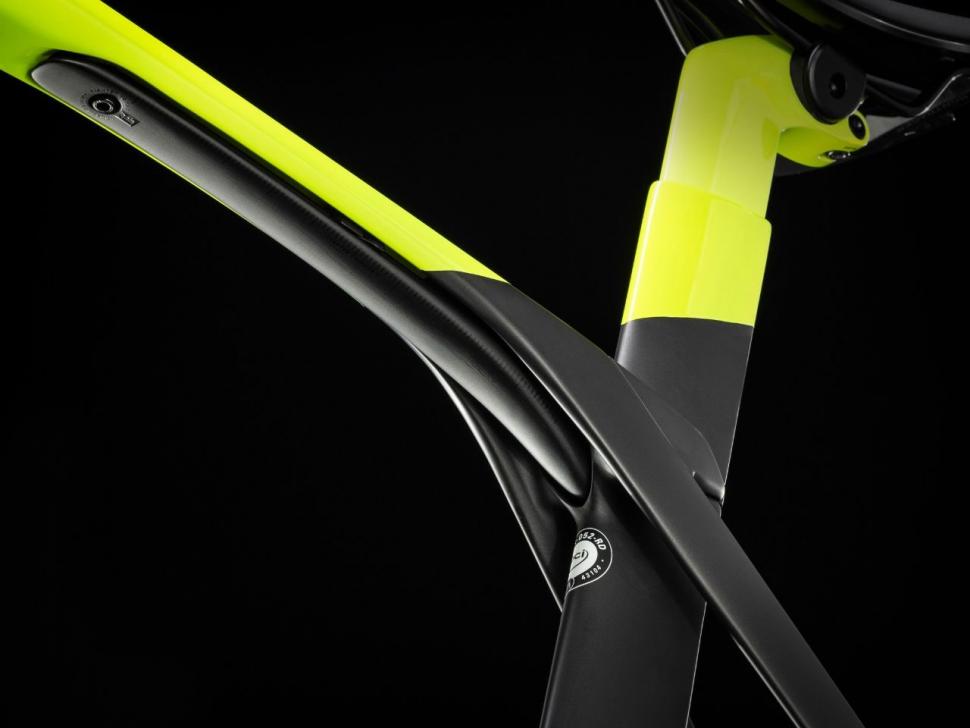 The latest big update was announced in mid-2019 when the SLR models got the top tube IsoSpeed system first introduced to the Madone (above). Trek also improved aero efficiency, increased clearance for tyres up to 38mm wide, and introduced hidden storage in the down tube.
The latest big update was announced in mid-2019 when the SLR models got the top tube IsoSpeed system first introduced to the Madone (above). Trek also improved aero efficiency, increased clearance for tyres up to 38mm wide, and introduced hidden storage in the down tube.
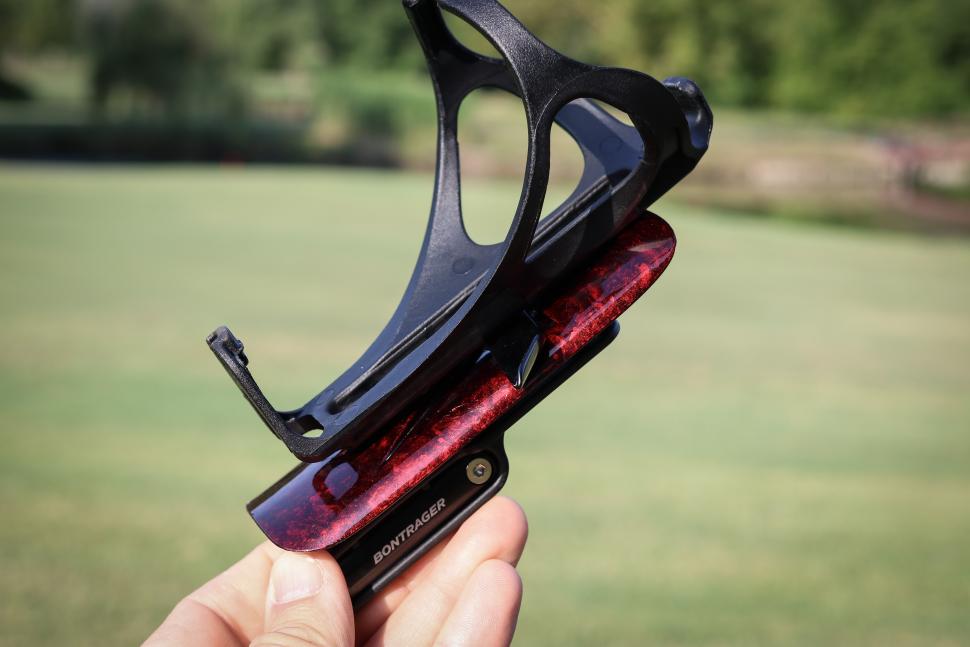 All Domane SLR and SL bikes (with carbon-fibre frames) are disc brake only. Rim brake and disc brake Domane AL aluminium bikes are available. There are also Domane+ ebikes that we won’t cover here.
All Domane SLR and SL bikes (with carbon-fibre frames) are disc brake only. Rim brake and disc brake Domane AL aluminium bikes are available. There are also Domane+ ebikes that we won’t cover here.
Domane SLR
The Domane SLR features both adjustable rear IsoSpeed with the spring lever sitting under the top tube and front IsoSpeed.
“Front IsoSpeed, located at the top of the headset, is captured in a rocker cup similar to rear IsoSpeed,” says Trek. “This allows the flex of the steerer tube, providing additional compliance at the front of a bike. The rocker cup of the upper steerer has zero lateral movement, allowing the bike to steer and handle with precision.”
Find out more about the Trek Domane SLRs here
The Domane SLR is made from 700 Series OCLV carbon and Trek says that aero improvements over the previous model will save you the 12W at 25mph. The cables enter the frame behind the steerer to keep them out of the wind as much as possible.
Trek offers IsoCore bars, which feature an elastomer in the bar itself, and IsoZone kits which use gel/EVA padding under the bar tape.
The Domane SLR has a removable plate where the bottle cage sits; flip a lever and you can access space inside the tube. The cover has a multitool slot, and Trek also offers a tool roll specifically designed for the space.
The least expensive model is the Shimano Ultegra-equipped Domane SLR 6 AT £6,150. There are also Ultegra Di2 (£7,000) and Dura-Ace Di2 (£11,000) builds.
There are two SRAM models as well, each equipped with a power meter. The £7,650 Domane SLR 7 eTap has SRAM Force AXS components while the £11,200 Domane SLR 9 eTap (above) has top-level Red equipment.
Buy if: You’re after an endurance road bike that offers a really smooth ride.
Domane SL
The Domane SL features front IsoSpeed and non-adjustable rear IsoSpeed, and it’s made from Trek’s 500 Series OCLV, which isn’t as light as the 700 Series OCLV used for the Domane SLR.
Priced £2,325, the Domane SL 4 (above) is the most affordable model, featuring a mostly Shimano Tiagra groupset, including hydraulic disc brakes.
The £2,850 Domane SL 5 is a similar bike but with a Shimano 105 groupset.
The highest Shimano-specced model is the Domane SL 7 (£5,600), equipped with an Ultegra Di2 groupset and Bontrager Aeolus Pro 3 V Disc Tubeless Ready wheels.
The £5,650 Domane SL 7 eTap comes with SRAM Force eTap AXS wireless shifting and a crank-based power meter.
Buy if: You’re looking for a road bike with an endurance-friendly geometry and a smooth character
Domane AL
There are five aluminium Domane AL bikes for 2021, four of them with disc brakes and one with rim brakes. None of them have the decouplers found on the carbon-fibre models.
The most affordable model is the £695 Domane AL 2 (above). It's built to an endurance fit that's designed for comfort. The AL 2 is built up with a Shimano Claris 8-speed groupset.
For model year 2021 Trek has a new range of Domane AL Disc aluminium endurance bikes with claims of all-road suitability thanks to 35mm tyre clearance.
Find out about the new Domane AL Disc bikes here
These bikes are made using Trek's 200 Series Alpha Aluminium, rather than the 100 Series used for the AL 2. As well as a generous amount of tyre clearance, they come with mounts for mudguards, front and rear racks, three bottle cages, and a top tube-mounted bento box. They also have internal cable mounts.
The least expensive model is the Domane AL 2 Disc at £895, with a mostly Shimano Claris groupset. The Domane AL 3 Disc (£995) is equipped with 9-speed Shimano Sora, the Domane AL 4 Disc (£1,495) has 10-speed Shimano Tiagra, and the Domane AL 5 Disc (£1,775, above) is fitted with 11-speed Shimano 105 components.
Buy if: You’re after an endurance road bike that offers exceptional value for money.
Checkpoint
Trek's 2021 range includes carbon and aluminium Checkpoint gravel bikes featuring the IsoSpeed decoupler from the Domane (see above), and with space for up to 45mm tyres, umpteen water bottle mounts plus mudguard and rack eyelets, 12mm thru-axles and flat mount disc brakes. Checkpoints cost from £1,700 right up to £5,100.
Trek first showed its cards with the Domane Gravel, a slightly modified version of the company’s endurance bike but with wider tyres. It's fair to say we were all a bit surprised by the effort, but it now looks like it was a stopgap for real gravel bike enthusiasts before the arrival of the company’s first dedicated foray into this growing category, the Checkpoint.
Compared to the Domane Gravel, Trek says the new Checkpoint offers much improved off-road capability and general versatility, with bigger tyre clearance, adjustable dropouts and geometry and lots of accessory mounts the key differences. Why they didn't just launch the Checkpoint in the first place is anyone's guess.
Read our first look at the Checkpoint range
Trek offers the Checkpoint in both an aluminium or a carbon-fibre frame. The carbon bikes have the IsoSpeed decoupler that Trek introduced on the Domane in 2012, while the aluminium bikes are rigid.
IsoSpeed is a mechanism that allows the top of the seat tube to move a little, independently of the rest of the frame, to provide a small amount of bum-cosseting shock absorption.
The top of the range is the Checkpoint SL 7 (above), which boasts a 1x (single chainring) SRAM Force/Eagle 12-speed groupset and hydraulic brakes for an RRP of £5,650.
The highest-specced Shimano model is the Checkpoint SL 6 (£3,600), with a GRX RX800 groupset.
"If you want a bike that is comfortable and provides space for wide tyres for mostly road riding, with lots of versatility whether for winter training and commuting or touring and bikepacking, the Trek is a good choice," we said in our review of a former version of the Checkpoint SL 6. "But it's not the most capable bike when the going gets rough and bumpy.
"Sure, the rear IsoSpeed decoupler works its magic, filtering out the harshness and giving your bum and back a smooth ride, but the front end is simply too harsh in comparison.”
We criticised Trek for not fitting wider tyres and a lower range drivetrain. However, the 2021 version has wider tyres (40mm rather than 35mm) and lower gear ratios.
Read our review of the Checkpoint SL 6
If you can live without carbon fibre and Isospeed, £2,150 gets you the Checkpoint ALR 5 (above) with Shimano GRX RX 800 and RX 600 components.
The least expensive bike in the range is the Checkpoint ALR 4 at £1,875 in a Shimano GRX RX400 and RX600 build.
Buy if: You want a gravel/adventure bike that's also capable of moving fast over asphalt.
Cyclocross
We've mainly focused on Trek road bikes here, but the company also offers two cyclocross platforms: Crockett and Boone.
The Crockett frame is disc-specific and it’s made from 300 Series Alpha Aluminium. The Crockett 5 Disc (£2,050, above) comes with a largely SRAM Rival groupset, including hydraulic disc brakes.
Check out our review of a past Trek Crockett disc bike here
The Boone is made from 600 Series OCLV carbon fibre and, like the Crockett, it is disc-specific.
The £3,450 Boone 6 Disc (above) comes with a 1x Shimano GRX groupset – mostly RX800 although the hydraulic disc brakes are RX400.
Buy if: You want a cyclocross race bike with cross-specific geometry and gearing.
| Model | Bike type | Frame material | Groupset | Brakes | Price |
|---|---|---|---|---|---|
| Emonda | |||||
| Emonda ALR 4 | Road | Aluminium | Shimano Tiagra | Disc | £1,600 |
| Emonda ALR 5 | Road | Aluminium | Shimano 105 | Disc | £2,000 |
| Emonda ALR 6 | Road | Aluminium | Shimano Ultegra | Disc | £2,450 |
| Emonda SL 5 | Road | Carbon fibre | Shimano 105 | Disc | £2,500 |
| Emonda SL 6 | Road | Carbon fibre | Shimano Ultegra | Disc | £3,200 |
| Emonda SL 6 Pro | Road | Carbon fibre | Shimano Ultegra | Disc | £3,700 |
| Emonda SL 7 | Road | Carbon fibre | Shimano Ultegra Di2 | Disc | £5,350 |
| Emonda SL 7 eTap | Road | Carbon fibre | SRAM Force eTAP AXS | Disc | £5,800 |
| Emonda SLR 6 | Road | Carbon fibre | Shimano Ultegra | Disc | £6,000 |
| Emonda SLR 7 | Road | Carbon fibre | Shimano Ultegra Di2 | Disc | £6,500 |
| Emonda SLR 7 eTap | Road | Carbon fibre | SRAM Force eTap AXS | Disc | £7,450 |
| Emonda SLR 9 | Road | Carbon fibre | Shimano Dura-Ace Di2 | Disc | £10,700 |
| Emonda SLR 9 eTap | Road | Carbon fibre | SRAM Red eTap AXS | Disc | £10,700 |
| Madone | |||||
| Madone SL 6 | Road | Carbon fibre | Shimano Ultegra | Disc | £4,600 |
| Madone SL 7 | Road | Carbon fibre | Shimano Ultegra Di2 | Disc | £6,000 |
| Madone SL 7 eTap | Road | Carbon fibre | SRAM Force eTap AXS | Disc | £6,600 |
| Madone SLR 6 | Road | Carbon fibre | Shimano Ultegra | Disc | £6,900 |
| Madone SLR 7 | Road | Carbon fibre | Shimano Ultegra Di2 | Disc | £8,250 |
| Madone SLR 7 eTap | Road | Carbon fibre | SRAM Force eTap AXS | Disc | £9,050 |
| Madone SLR 9 | Road | Carbon fibre | Shimano Dura-Ace Di2 | Disc | £12,500 |
| Madone SLR 9 eTap | Road | Carbon fibre | SRAM Red eTap AXS | Disc | £13,250 |
| Domane | |||||
| Domane AL 2 | Road | Aluminium | Shimano Claris | Rim | £695 |
| Domane AL 2 Disc | Road | Aluminium | Shimano Claris | Disc | £895 |
| Domane AL 3 Disc | Road | Aluminium | Shimano Sora | Disc | £995 |
| Domane AL 4 Disc | Road | Aluminium | Shimano Tiagra | Disc | £1,495 |
| Domane AL 5 Disc | Road | Aluminium | Shimano 105 | Disc | £1,775 |
| Domane SL 4 | Road | Carbon fibre | Shimano Tiagra | Disc | £2,325 |
| Domane SL 5 | Road | Carbon fibre | Shimano 105 | Disc | £2,850 |
| Domane SL 6 | Road | Carbon fibre | Shimano Ultegra | Disc | £3,700 |
| Domane SL 7 | Road | Carbon fibre | Shimano Ultegra Di2 | Disc | £5,600 |
| Domane SL 7 eTap | Road | Carbon fibre | SRAM Force eTap AXS | Disc | £5,650 |
| Domane SLR 6 | Road | Carbon fibre | Shimano Ultegra | Disc | £6,150 |
| Domane SLR 7 | Road | Carbon fibre | Shimano Ultegra Di2 | Disc | £7,000 |
| Domane SLR 7 eTap | Road | Carbon fibre | SRAM Force eTap AXS | Disc | £7,650 |
| Domane SLR 9 | Road | Carbon fibre | Shimano Dura-Ace Di2 | Disc | £11,000 |
| Domane SLR 9 eTap | Road | Carbon fibre | SRAM Red eTap AXS | Disc | £11,200 |
| Gravel bikes | |||||
| Checkpoint ALR 4 | Gravel | Aluminium | Shimano GRX RX400 | Disc | £1,875 |
| Checkpoint ALR 5 | Gravel | Aluminium | Shimano GRX RX600/RX800 | Disc | £2,150 |
| Checkpoint SL 5 |
Gravel | Carbon fibre | Shimano GRX RX600/RX800 | Disc | £3,100 |
| Checkpoint SL 6 |
Gravel | Carbon fibre | Shimano GRX RX800 | Disc | £3,600 |
| Checkpoint SL 7 |
Gravel | Carbon fibre | SRAM Force/Eagle | Disc | £5,650 |
| Cyclocross | |||||
| Crockett 5 Disc | Cyclocross | Aluminium | SRAM Rival 1 | Disc | £2,050 |
| Boone 6 Disc | Cyclocross | Carbon fibre | Shimano GRX RX800 | Disc | £3,450 |
About road.cc Buyer's Guides
The aim of road.cc buyer's guides is to give you the most, authoritative, objective and up-to-date buying advice. We continuously update and republish our guides, checking prices, availability and looking for the best deals.
Our guides include links to websites where you can buy the featured products. Like most sites we make a small amount of money if you buy something after clicking on one of those links. We want you to be happy with what you buy, so we only include a product if we think it's one of the best of its kind.
As far as possible that means recommending equipment that we have actually reviewed, but we also include products that are popular, highly-regarded benchmarks in their categories.
Here's some more information on how road.cc makes money.
You can also find further guides on our sister sites off.road.cc and ebiketips.
road.cc buyer's guides are maintained by the road.cc tech team. Email us with comments, corrections or queries.
Mat has been in cycling media since 1996, on titles including BikeRadar, Total Bike, Total Mountain Bike, What Mountain Bike and Mountain Biking UK, and he has been editor of 220 Triathlon and Cycling Plus. Mat has been road.cc technical editor for over a decade, testing bikes, fettling the latest kit, and trying out the most up-to-the-minute clothing. He has won his category in Ironman UK 70.3 and finished on the podium in both marathons he has run. Mat is a Cambridge graduate who did a post-grad in magazine journalism, and he is a winner of the Cycling Media Award for Specialist Online Writer. Now over 50, he's riding road and gravel bikes most days for fun and fitness rather than training for competitions.
Latest Comments
- ChrisA 3 hours 20 min ago
Is the flat battery still in place, or is it left at home to charge? And does that matter?...
- brooksby 3 hours 58 min ago
Are sales low because it seems like every other bike retailer is closing? So sales are low because people can't buy bikes (rather than because they...
- AidanR 4 hours 4 min ago
I don't recommend watching the video (!). ...
- Rendel Harris 4 hours 58 min ago
I generally get a response saying that action will be taken in 90% of cases I submit (I do only submit ones that I believe are absolute certanties)...
- OldSkoolOldFart 5 hours 16 min ago
If you can't hear me call out a cheery (loud) "excuse me" as I approach them you're not going to hear the pathetic "ting" from a tiny bell....
- Spangly Shiny 5 hours 50 min ago
I got mine FOC with a Galibier gilet, just as versatile as a Buff.
- Spangly Shiny 6 hours 9 min ago
From the outside the US appears to be a Christian fundamentalist country, with the same prudish outlook as other religious fundamentalist countries.
- Simon E 6 hours 48 min ago
It's bullshit, a token effort akin to sportswashing....
- Rendel Harris 6 hours 54 min ago
If you know anyone with Zwift or other indoor training programmes, they all have FTP tests on them so you wouldn't have to subject yourself to a...
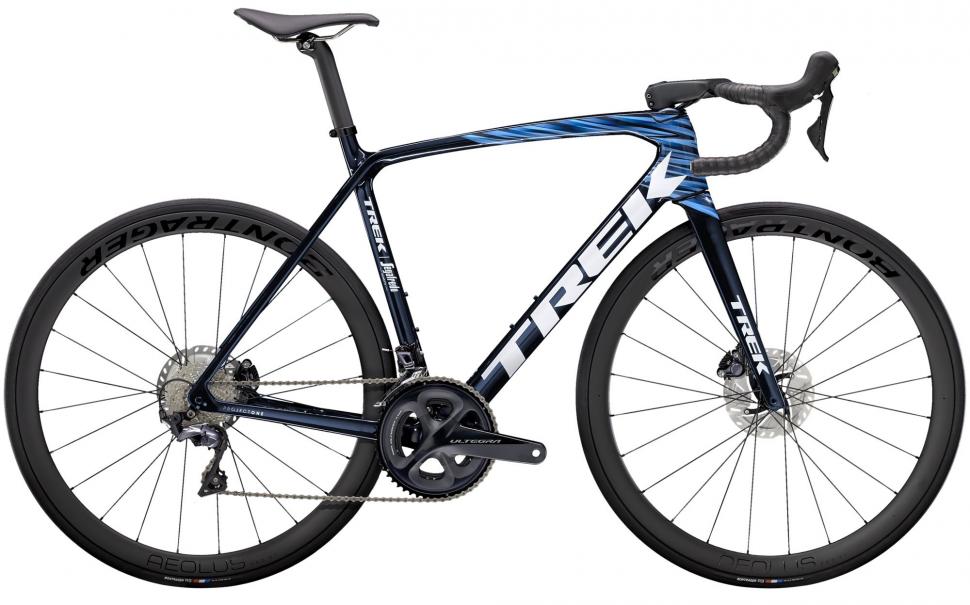
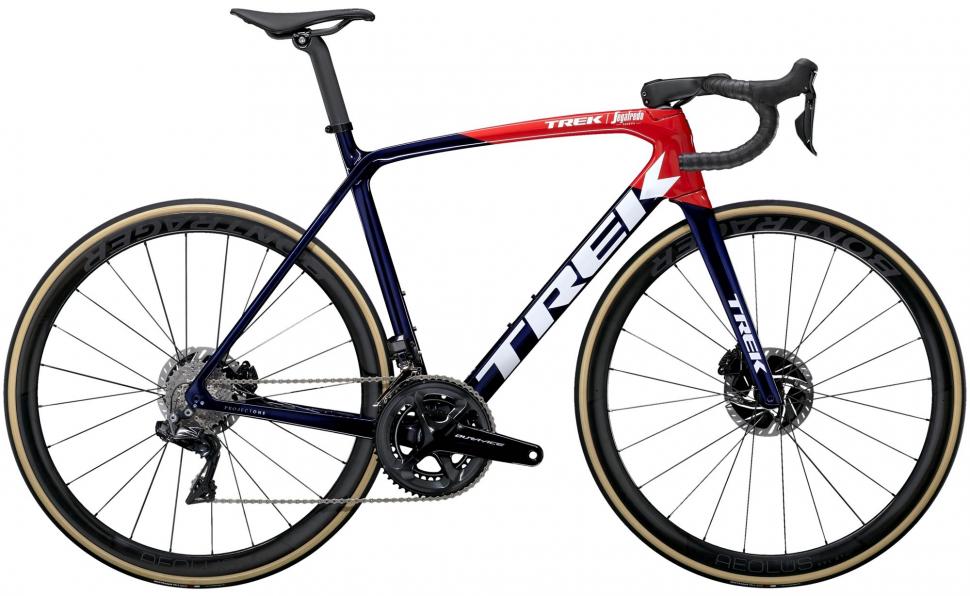
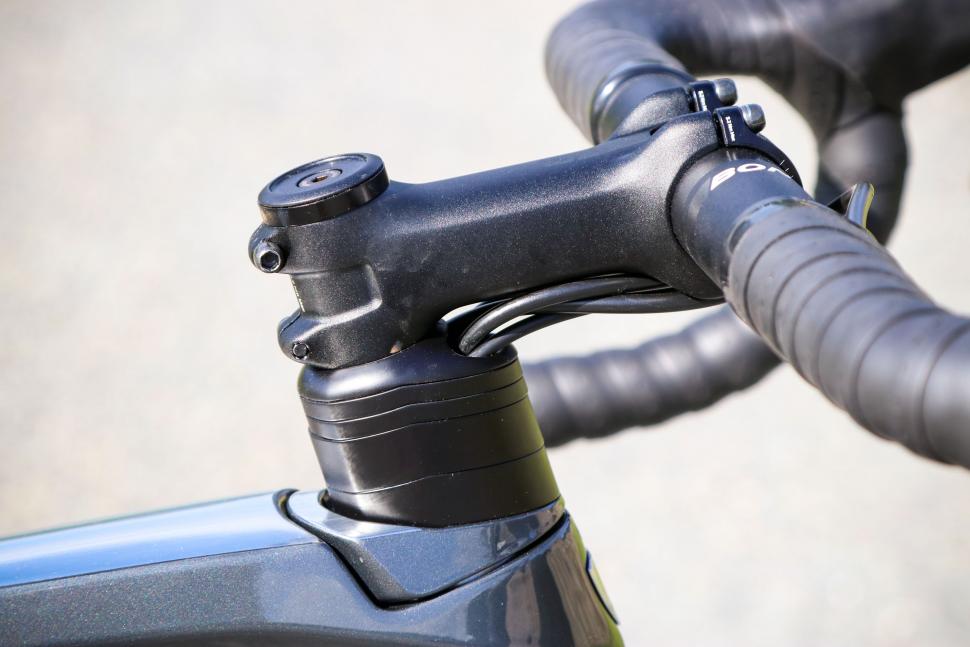
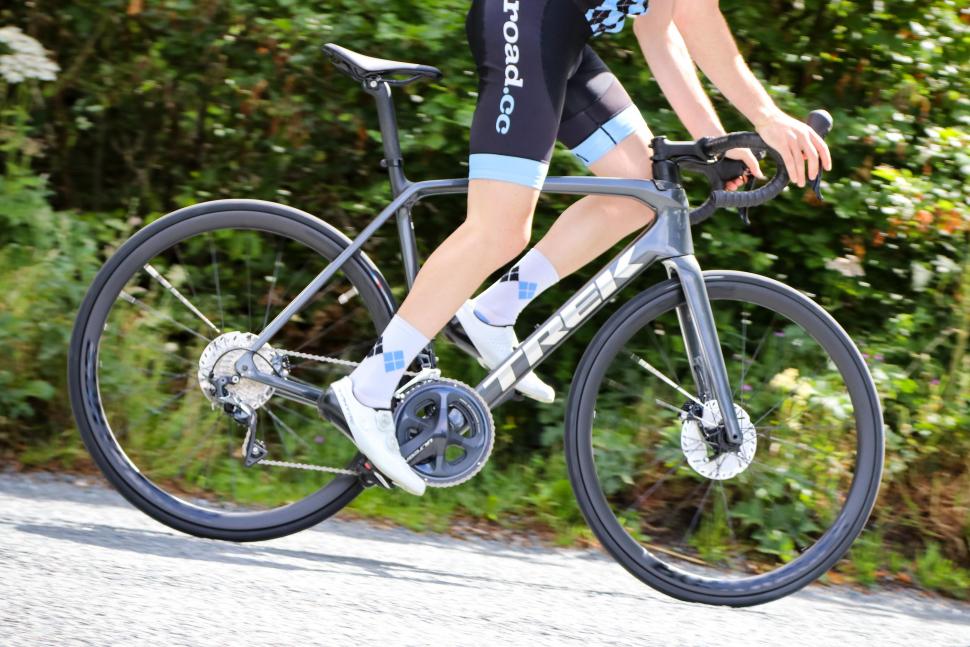
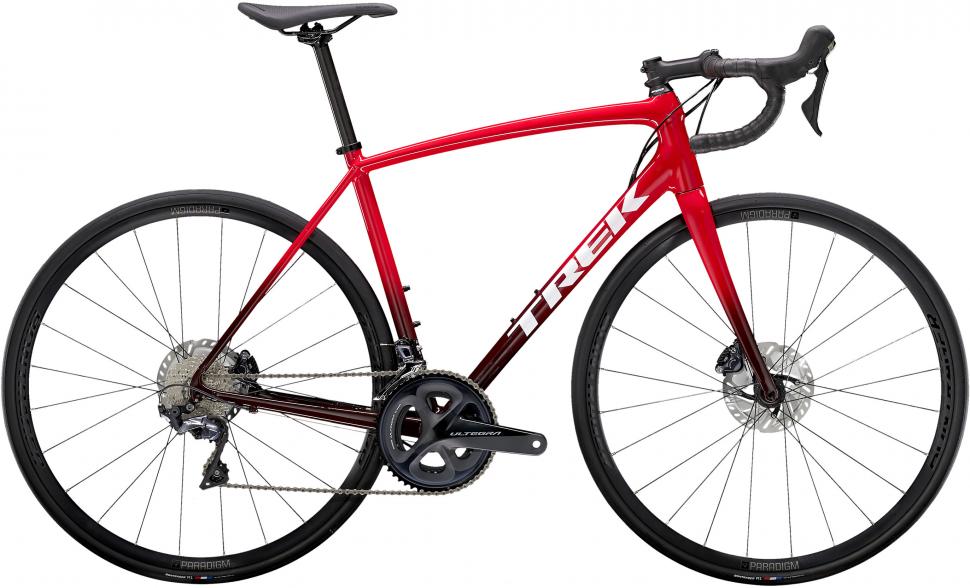
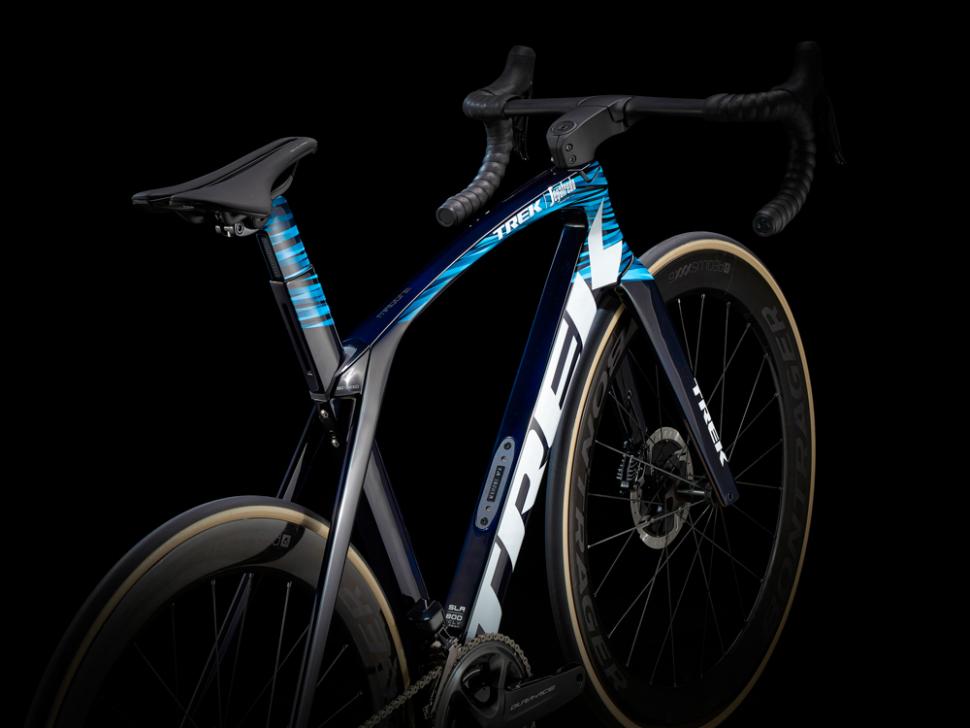
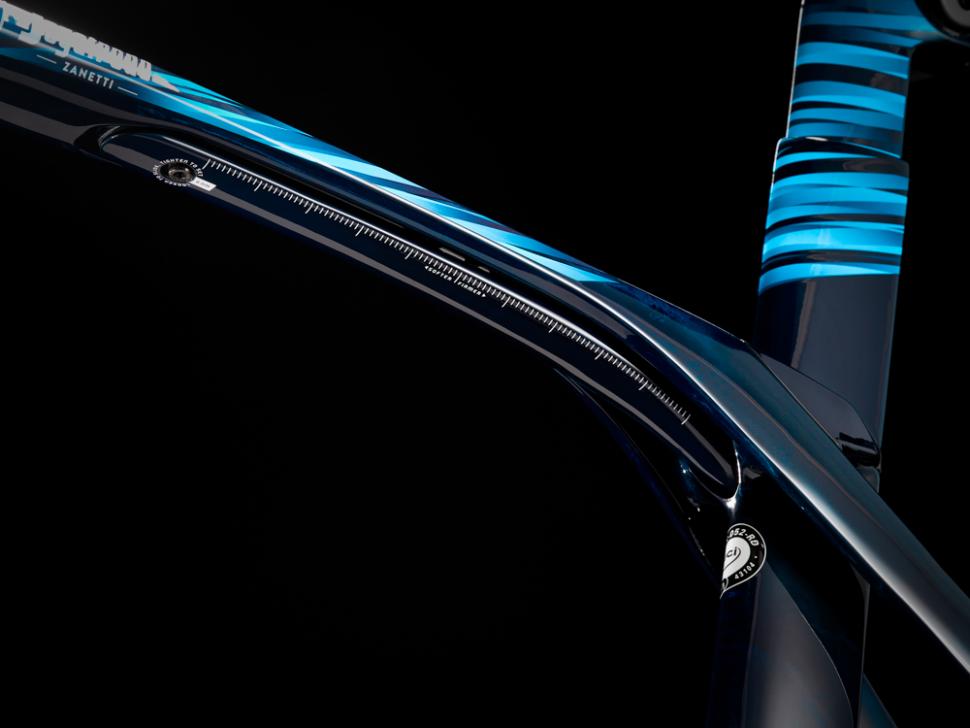
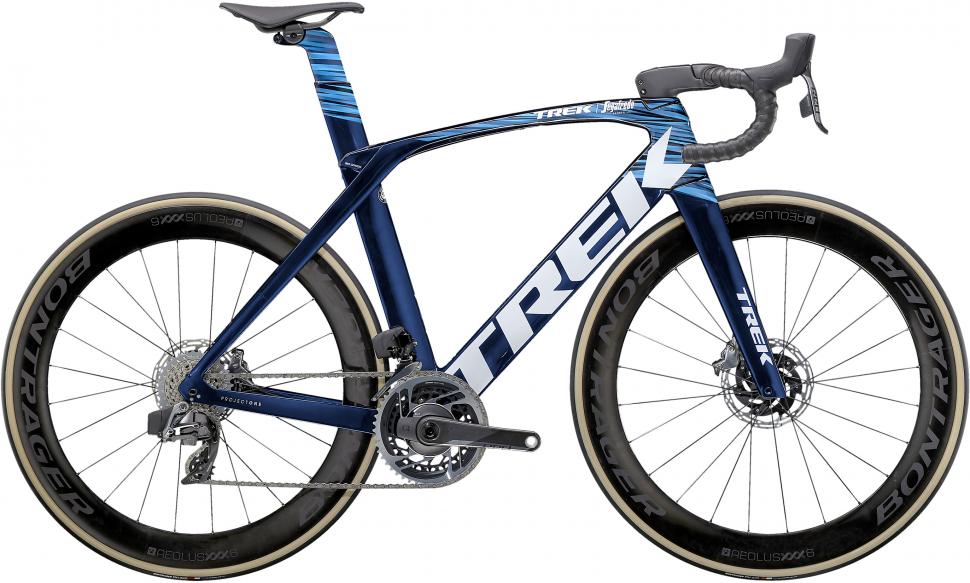
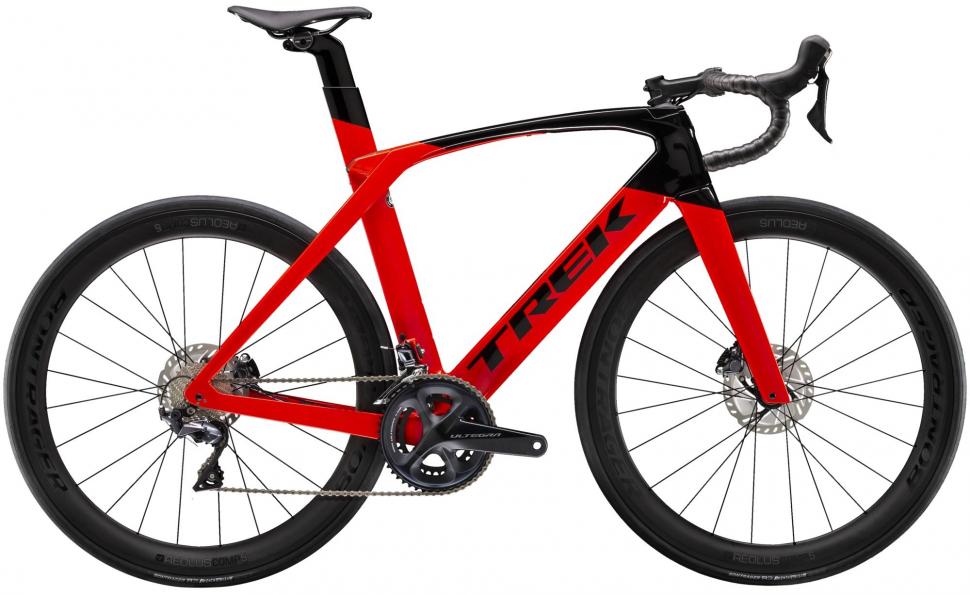
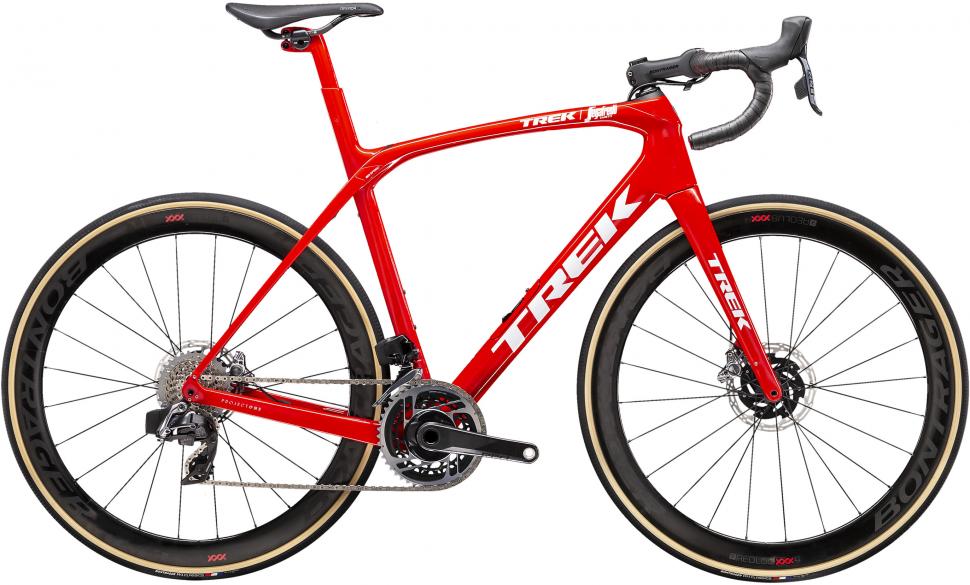
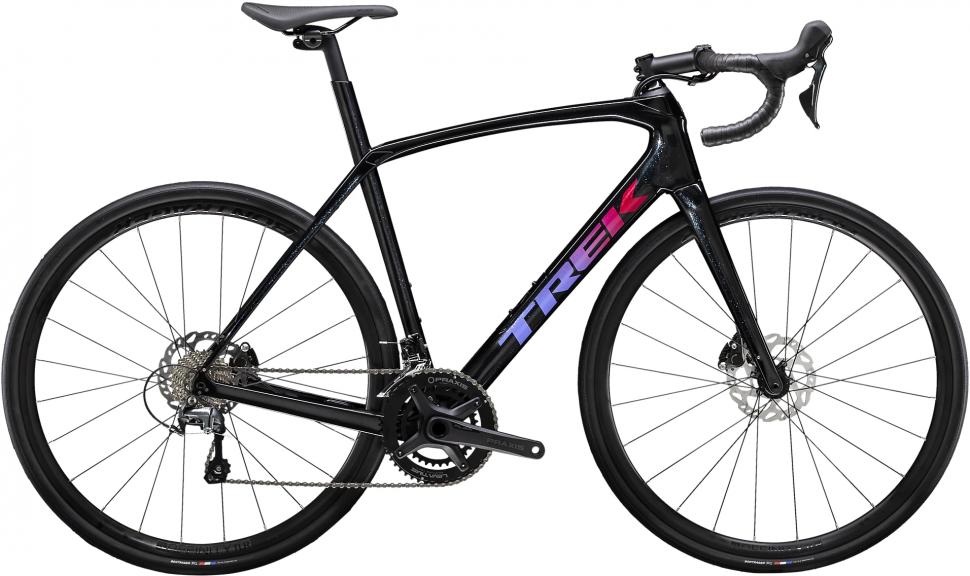
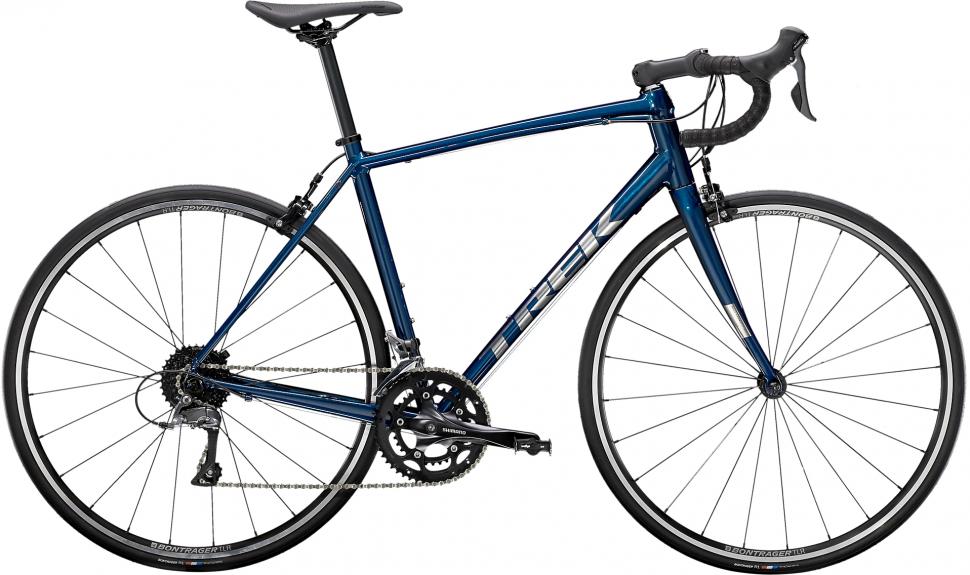
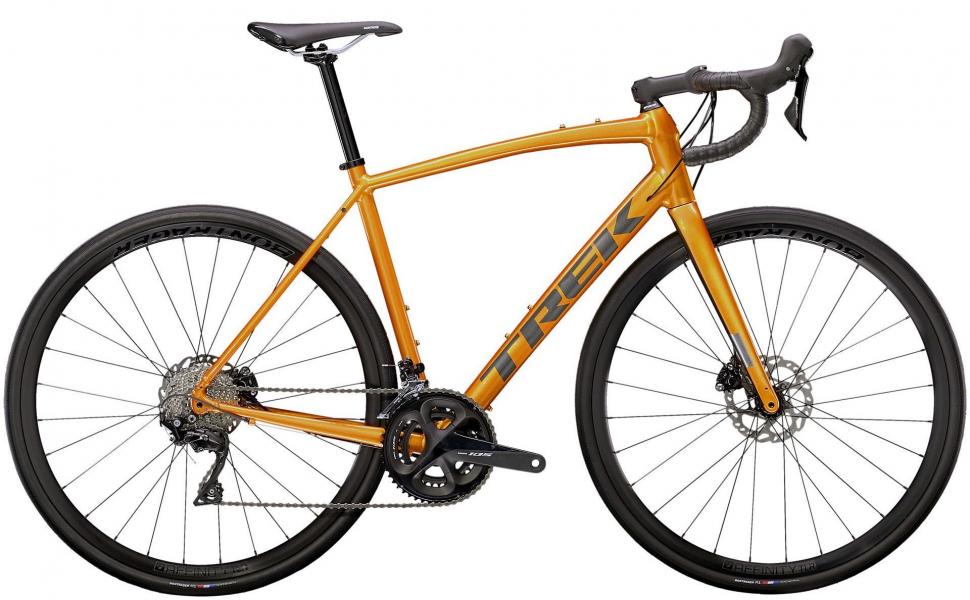
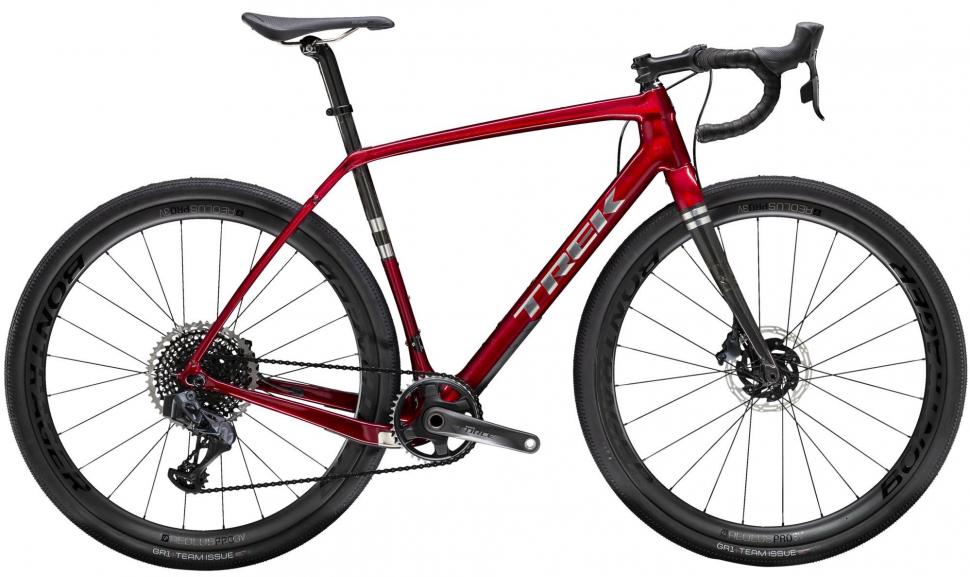
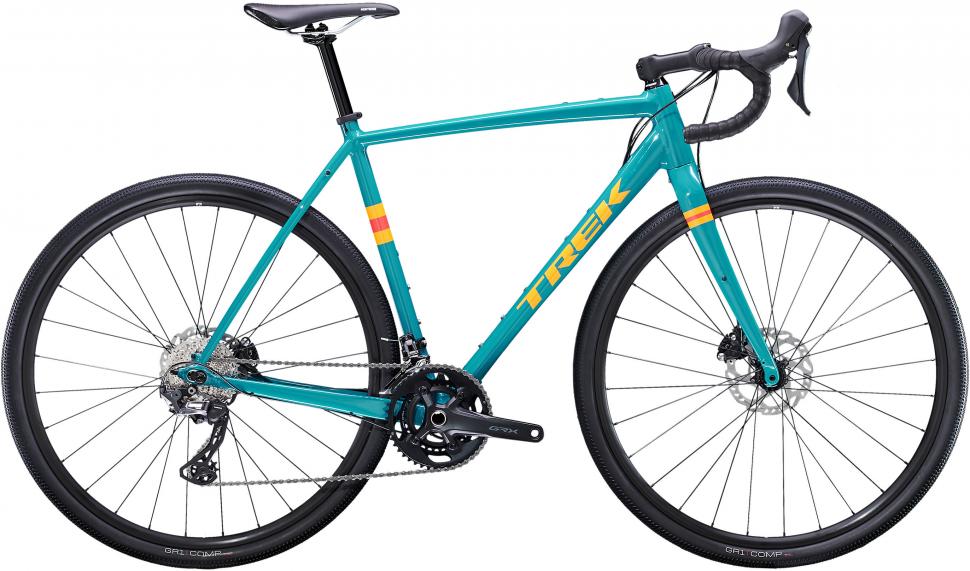
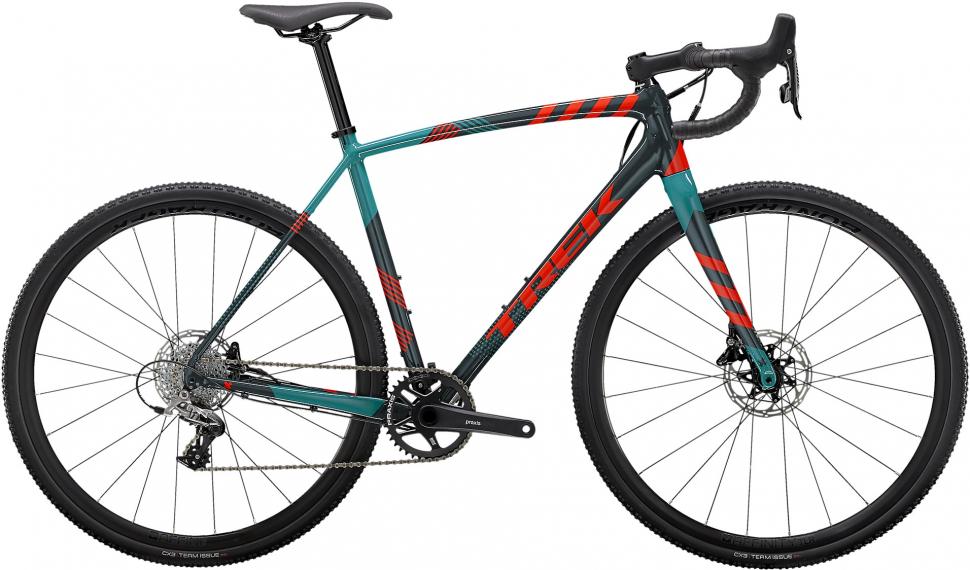
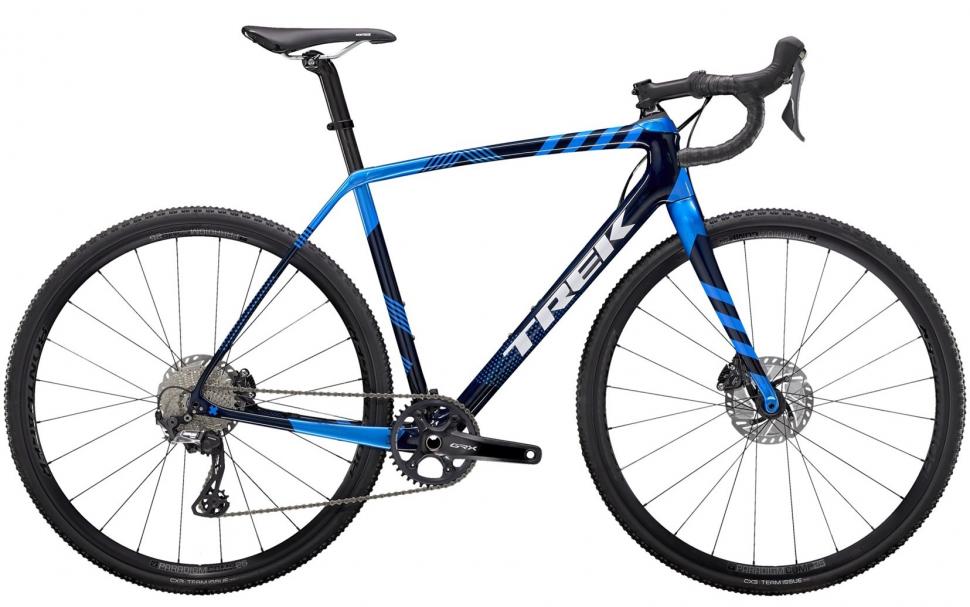
Add new comment
11 comments
Presumably the Speed Concept TT bike isn't a road bike? Really surprised this wasn't included.
Good luck getting hold of one in 2021
Nice article, I even felt a vague stirring in the loins for the Madone which is quite something considering the rest of the range is as dull as dishwater. You're wrong about the pronunciation though, it's pronounced "Mad One" after the sociopathic bully who made the model famous.
I'm sure they're all great bikes, but why oh why do they have to be so ugly?
shouldnt that table title read 2018 trek ?
Yes, and now it does. Ta.
Except how you pronounce their daft model names!
Ha! Now added that in.
Yeah but they're Amercian
Wow lol